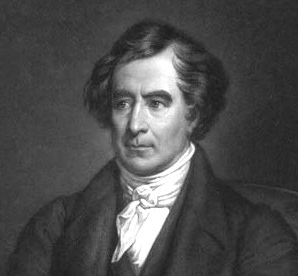February 26: François Arago (1786)
 It was on this date, February 26, 1786, that French mathematician, physicist, astronomer and politician François Arago was born François Jean Dominique Arago at Estagel, a small village near Perpignan, in the département of Pyrénées-Orientales. Brought up before and maturing during the French Revolution, he became one of the greatest French astronomers and physicists of the nineteenth century. Although tempted by the clerical-royalist reaction after 1814, he joined the anti-clerical side after the Revolution of 1830 as a deputy in the Chambre, director of the Observatory and perpetual secretary of the Academy of Sciences. During the Revolution of 1848 he fought on the barricades, at the age of 62, and afterward rose to Minister of War and Marine. In these positions he oversaw, against an array of moneyed interests, the abolition of slavery throughout France and its colonies and championed universal male suffrage in France. Academically, Arago was admitted at the young age of 23 to the French Academy, and was awarded the Copley Medal by the Royal Society for his work in physics and astronomy. In 1832, he was elected a Foreign Honorary Member of the American Academy of Arts and Sciences. Joining the French Provisional Government in 1848, Arago improved rations in the navy and abolished flogging. He also abolished political oaths of all kinds, twice (with impunity) refusing to swear an oath to Louis Napoleon (Napoleon III).
It was on this date, February 26, 1786, that French mathematician, physicist, astronomer and politician François Arago was born François Jean Dominique Arago at Estagel, a small village near Perpignan, in the département of Pyrénées-Orientales. Brought up before and maturing during the French Revolution, he became one of the greatest French astronomers and physicists of the nineteenth century. Although tempted by the clerical-royalist reaction after 1814, he joined the anti-clerical side after the Revolution of 1830 as a deputy in the Chambre, director of the Observatory and perpetual secretary of the Academy of Sciences. During the Revolution of 1848 he fought on the barricades, at the age of 62, and afterward rose to Minister of War and Marine. In these positions he oversaw, against an array of moneyed interests, the abolition of slavery throughout France and its colonies and championed universal male suffrage in France. Academically, Arago was admitted at the young age of 23 to the French Academy, and was awarded the Copley Medal by the Royal Society for his work in physics and astronomy. In 1832, he was elected a Foreign Honorary Member of the American Academy of Arts and Sciences. Joining the French Provisional Government in 1848, Arago improved rations in the navy and abolished flogging. He also abolished political oaths of all kinds, twice (with impunity) refusing to swear an oath to Louis Napoleon (Napoleon III).
François Arago wrote an autobiography which remained unpublished during his life, but covers his very exciting life up to about 1822 (published in 1857 as Lives of Distinguished Scientific Men). An outspoken atheist, there is an abundance of anti-clerical and agnostic opinion in his letters (published 1908) to his friend Alexander von Humboldt, another scientific freethinker. He died on 2 October 1853, age 67, in Paris. Craters on Mars and the Moon, and a ring of Neptune, are named after Arago. His name is one of the 72 names inscribed on the Eiffel Tower.

